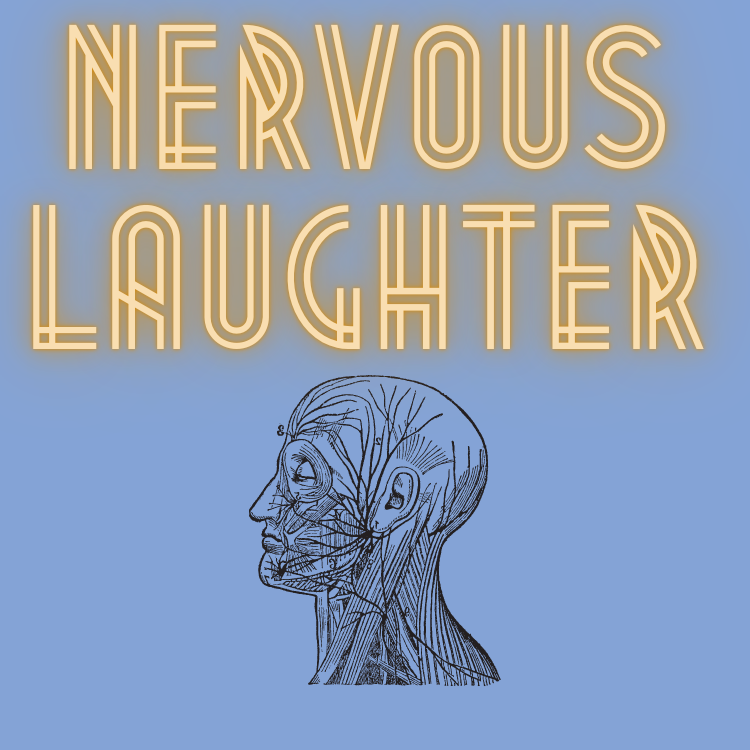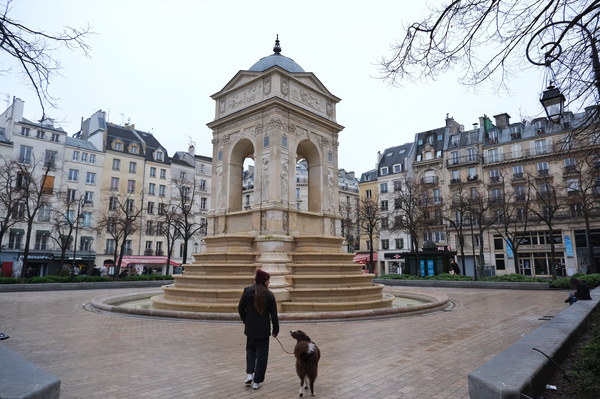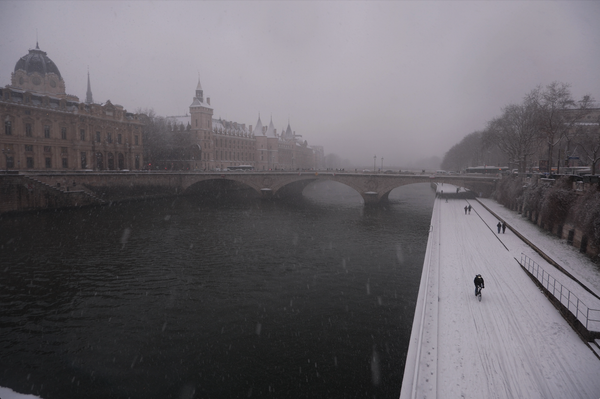A Short Violent Evening
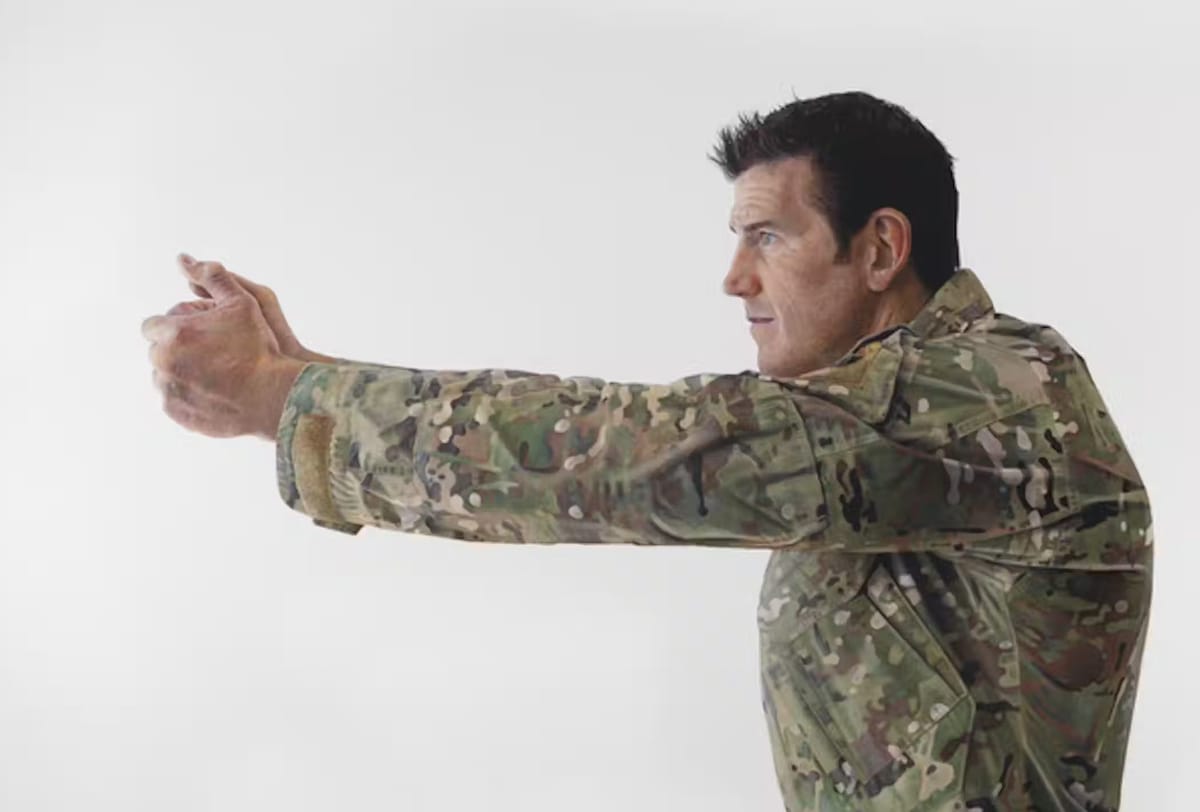
The kinds of grievous injuries for which I might be covered under my travel insurance policy are oddly combinatorial, I noted with some grim amusement from the couch while I read.
A lousy $25,000 for the loss of both feet or the loss of both hands.
Similarly, the loss of one foot and one hand – any mix – attracts a 25k payout. So far, I can see the logic. The product disclosure statement then descends further into detail. The loss of one eye and one foot or one hand, but not both and not one of each, also 25k. Oddly specific, but sure, I get it. You've got a business to run.
None of these figures apply if injuries or death occur during snow sports activities – even if I had purchased snow sports cover, I'm told – or if the cause is 'a nuclear reaction or contamination from nuclear weapons or radioactivity'. To spend even a moment in the writers' room for that product disclosure statement would have been a real thrill. Straight from snow mobiles to nuclear winter without so much as a stopover at parkour.
Should the worst happen, one insurance company disclosed that it would provide up to $60,000 toward the cost of returning my body to Australia. Another offers much less for the same claim but appears to have been co-founded by JRR Tolkien in that it calls the service the 'repatriation of your mortal remains'. I'd buy that à la carte, to be honest.
I am not normally possessed of any admiration for the actuarial instincts of the insurance industry. Necessary though I am sure these instincts are, it has always struck me as deeply inhuman to rely too heavily on them. That the incidence of disease or injury fits some kind of pattern is not particularly useful at the individual level, and to apply any such lens to human endeavour tends to also introduce the attendant distortions. There is a flattening, effect, even as the curve is belled.
And yet. And yet.
There are those among us who have strayed too far from the light of reason. A group of people who, in their hubris and rather gormless bravado, have engaged in the travel insurance equivalent of launching a snow mobile off a ledge and into a ravine while not only refusing to purchase the boondoggle of additional snow activity cover but having written to every insurance provider in the world explicitly telling them to go fuck themselves.
Leading this group is former Australian soldier and current war criminal Ben Roberts-Smith, a man who quite famously prefers to shoot first and ask for suggestions later. A man who, having been accused of criminality in war, has spend millions of dollars of other peoples' money trying to prove it.
Just a dollop of risk aversion could be quire transformative for the guy.
His submissions to the full Federal Court of Australia on appeal in his gigantic defamation case against Nine Newspapers and journalist Nick McKenzie read as a malingerer's laundry list of literal insurance claims. If he can't win on one already rejected account – his own, by the way – then the court should accept another rejected account which also directly contradicts the one he gave in evidence. Oh, you don't believe I broke a shoulder in the snow mobile incident? Would you take gout? Pleurisy?
The appeal judgement dismisses every single submission he made against the sole trial judge and, for what it's worth, found the original judge made precisely two errors in the whole of the gargantuan trial and his attendant reasons, sifting through a constellation of subtle points of law and myriad evidentiary obligations to arrive at the devastating conclusion that BRS, through a now pathological aversion to actuarial restraint, has managed to have confirmed in triplicate at appeal.
He is a war criminal.
Across 110,000 words of the appeal judgment, variations of the root word reject are used 128 times, or once every 860 words. The form not accept is used another 45 times. In almost every instance these are used to describe a submission made by BRS and his legal team to the primary judge or on appeal, all of which were rejected or not accepted. I have become slightly obsessed, perhaps you can tell, with the elements of these rejections and the phrasing deployed by the justices and we shall tour some of them here, for posterity.
1: 'It might be thought odd that the appellant now advances a case on appeal directly contradicted by his own evidence at trial. However, it seems clear that the appellant did in fact advance both cases at trial'.
This is in relation to the testimony that Ben Roberts-Smith machine-gunned to death a man with a prosthetic leg while on deployment in Afghanistan at a compound known as Whiskey 108. BRS was also witnessed ordering Person 4, another solder, to shoot and kill an old man found in a tunnel at the compound as part of an effort to 'blood the rookie'. This old man was found dead near the tunnel inside the compound. BRS once disputed this but now officially accepts – because the evidence is insurmountable – that the old man with the gunshot wound to his head was indeed killed and found in the courtyard. As the appeal court noted, photos of the body and the pool of bloody 'unquestionably' show the man died where he lay and had not been moved from outside the compound. This is significant because of what BRS claimed about how they both died.
By his evidence, BRS and another soldier, possibly Person 4, lawfully engaged two insurgents as they tried to flee outside the compound. These were the old man and the man with the prosthetic leg. To aid this narrative, Roberts-Smith was shown a photo of weapons that he said at trial he had found on their bodies. Except, these weapons came from a weapons cache found elsewhere in the compound by another soldier and which were photographed there as part of that discovery.
2: 'Each of these encountered difficulties at the trial, some were abandoned before the end of the trial, all were rejected by the primary judge, and only (f), (g) and (h) are now pursued on appeal'.
At trial, BRS came up with eight central propositions, listed by judges now as (a) through (h) that he claimed dispelled the case put by the former Fairfax newspapers and journalist Nick McKenzie. These were slowly knocked out of play and, one by one, displaced by evidence that they were not true. For example: BRS testified that the troop and patrol never used the term 'rookie' ever or at all in any context and therefore it would not be possible to order Person 4 to kill the old man so that the 'rookie' could be 'blooded'. During trial, however, BRS was shown a photo taken in 2010 of a sign above the door to his very own patrol that listed patrol members and a Person 8, at the time the most junior member, who had the designation 'rookie fuck'. The term rookie fuck was taken from the 2001 Jay Chandrasekhar film Super Troopers. Bad luck, Ben!
3: 'The appellant’s affirmative case could not be reconciled with several facts'.
Apart from the fact the old man's body was found inside the compound and not outside it as claimed, and that the weapons BRS positively identified as having found on the body of the man with the prosthetic leg actually came from a weapons cache photographed elsewhere by another soldier, the difficult reconciliation of facts mot notably among these was that a includes the inconvenient detail that there was another cordon patrol stationed off the northwest corner of the Whiskey 108 compound whose sole job it was to make sure there were no potential insurgents escaping from the compound. They saw nothing. Further, the appeal judges wrote there was an 'absence of any evidence that the cordon patrol, Gothic 4, had failed in its cordon duties by failing to intercept the old man and the man with the prosthetic leg'. They went on to say: 'Put another way, not only did Gothic 4 not observe the two men running around the northern end of the compound as they should have if this had occurred, but no one suggested in the aftermath that there had been a failure by Gothic 4 in the performance of their cordon duties'.
4: In addition, the primary judge found that the appellant had deliberately concealed evidence in the course of the proceeding. These included a failure to discover USB sticks which he kept in a lunch box buried in his garden. Finally, the primary judge found that the appellant had given much evidence which was not credible.
Look, I know judges have a much more subtle way of assessing the credit and reliability of witnesses but as far as I am concerned it is very difficult to come back from hiding evidence in a lunchbox in your own backyard. In the hierarchy of error that pervades this case, lunchables fraud must rank fairly high and only below 'commission of war crimes' and 'completely invented a story about a soldier being on leave from deployment to cover your arse'. But that's just me!
The contagion spreads, somewhat, to the lawyers engaged by BRS who had the unhappy task of trying to make sense of his claims and put them coherently to the court. Which is how we got this in his written submission: 'The proof the fact (that two men emerged from the tunnel) is established by inconsistent evidence (that one or two to three men emerged from the tunnel) which is only inconsistent if one assumes the truth of the fact'. The court attempted a response, below.
5: 'There are some difficulties in understanding what this sentence actually means. Whatever it means, however, rests on the false characterisation of the evidence of the various witnesses as being inconsistent. As have explained, their evidence was not inconsistent'.
Whatever it means is so casually brutal. I love it. I will marry it. I want to form a future with that phrase. Start a family with it, even.
6: 'The appellant repeatedly suggested that Person 41’s evidence was that he was away from the courtyard for a “minute or two” but in doing so omitted the word “probably”. This misquotation occurs four times at AS [11.1], [11.2] and [11.3]. Nowhere in the appellant’s submission is the evidence accurately quoted'.
This is just the start of a slew of lines directed at BRS and his team's penchant for misquoting or mischarcterising or misrepresenting the evidence at trial. But this does set the scene. 'Nowhere in the appellant's submission is the evidence accurately quoted'. It's giving Billy Madison.
But let's do the other references while we are here. These appear throughout the judgement, but I've corralled them for ease of analysis:
'Further, the appellant’s submission again involves misquotation of the evidence'.
'Thirdly, in relation to Person 40, the appellant again advanced an inaccurate summary of his evidence'.
'This is not what Person 81 said at all and involves a material misrepresentation of the evidence'. This ones leads directly into a savage putdown:
7: 'The submission should not have been advanced and is rejected'.
Perfect. No notes.
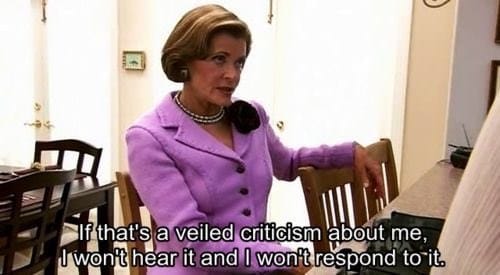
8: 'However, the difficulty is that the sentence does not make any sense... Making that assumption, the submission then proceeds to say that the primary judge did not make that error. If this is what the submission means, then it does not call for this Court to do anything with it. If it means anything else, its meaning is too obscure to warrant further consideration'.
At this point in the judgement you can practically hear the three justices pleading for the Rosetta stone of whatever the fuck Ben Roberts-Smith is on about.
9: 'We reject this submission for four reasons'.
When the rejection got that quadripartite story arc you know you're in trouble. Oh, you've got four reasons for how fucked I am on this particular matter? My bad.
At least BRS still had the argument that, sure, Person 4 killed the old man but he did so within the rules of engagement. Wait, hang on a second, this just in...
10: 'It is useful to note that there is no reliable evidence that can now support a hypothesis that Person 4 killed the old man in a lawful engagement'.
Uh oh! Sad trombone.
11: 'We would, with respect, go somewhat further than the primary judge... In our opinion, this part of the appellant’s case is fanciful'. The reference to the “rookie fuck” on the appellant’s patrol room door... made the respondents’ case... overwhelming and the appellant’s case correspondingly hopeless'.
'Correspondingly hopeless' might be a bearable phrase. If you're using it to describe a pen pal who is shit at sending letters. But to have the term affixed to the case against your being a war criminal is never a good sign.
12: '...and, of course, the gravely serious credit findings made against the appellant'.
To be clear, that was the last clause in a long-run on sentence about how bad things were going for BRS on appeal. You know how in a Steinbeck novel or similar the characters might say something like 'I might not have much, but I have my honesty'? BRS doesn't even have that.
13: 'It is not clear where this submission fits into the appellant’s notice of appeal. On the assumption that it does, however, it must be rejected'.
This is the judicial equivalent of rescuing a disoriented homing pigeon and releasing it into a ceiling fan.
14: 'In other words, the operational reports did not constitute independent evidence to support the appellant’s discredited account. They were no more than a repetition of his own self-serving statements'.
Quick moment of reflection here to note that the operational reports, which constitute official government documents were not worth squat in the court because at key junctures they were populated with information provided only or principally by patrol commander... Ben Roberts-Smith. Whose self-serving statements, ahem, were designed then as now to add a veneer of plausible legality to the murder of people who were not engaged as enemy combatants.
15: 'The problem for the appellant is that, unlike most homicides, there were three eyewitnesses to this murder... [the] strength of this evidence cannot be erased, and is in no way undermined, by peripheral inconsistencies. When all is said and done, it is a rare murder that is witnessed by three independent witnesses. The appellant’s efforts to construct uncertainty out of inconsistencies in peripheral detail are unpersuasive'.
This is in reference to BRS machine-gunning the man with a prosthetic leg at Whiskey 108. Remember this detail for later because the leg, as you may remember, will be back.
16: 'As the respondents’ submitted, the notion that an Afghan spotter could successfully conceal an ICOM [radio] on his person but an Australian soldier could not need only be stated to be rejected.'
This relates to the killing of Afghan civilian Ali Jan during a mission to Darwan. Jan was kicked off a cliff by BRS so violently, the court heard, that his own teeth flew out of his head when he hit it on the rocks below. He was a person under control at this point, no threat to anybody and handcuffed with his hands behind his back. At trial and subsequently, BRS gave evidence that Ali Jan was engaged as a Taliban 'spotter' who was seen running across a cornfield to escape and that is why he was killed (shot, by this version of events, within the rules of engagement). Now, to be a Taliban spotter – an unarmed enemy, typically – one must be carrying a radio to do the spotting. A spotter, by definition, is someone who hides in strategic positions to relay information to the Taliban and they cannot do this without the special ICOM radios. At one point in trial and again on appeal, BRS argued that Jan was spotted being a spotter. Which means they had to have identified the radio on him from a distance. But the central allegation here is that the ICOM radio was planted as a 'throwdown' after the fact to make-up for the small matter of Jan being kicked off a cliff and then killed in a war crime. BRS' counsel did, however, also argue that if the court really wanted to believe that the radio was planted as a throwdown 'it might simply have been used to divert any inquiry into the legitimacy of a lawful killing'. That is, they just wanted to avoid a silly little investigation because they knew they'd done the right thing. Buh bow. How do you plant a radio on an otherwise lawful killing if the only way the killing could have been lawful was that you saw the spotter running through a field with the radio?
17: 'The primary judge found that the appellant’s report that Ali Jan (“EKIA4”) was a spotter was false and that the appellant continued to spread false reports that Ali Jan was a spotter who had been engaged in the cornfield. He also found that the appellant was dishonest in numerous other respects. The appellant did not challenge any of these findings'.
For a bloke in the defence force he really doesn't do a lot of defending.
18: 'This was a short violent event in a long violent afternoon'.
There are so many people out there, you know the ones, who reflexively defend BRS because he was a soldier and he was at war and war requires quick-thinking and split-second decisions. And that is true, in the heat of battle. What those supporters fail to disclose, always, is that the war crimes testimony came from other soldiers on deployment in the same war at the same place and the same time as BRS. They were witnesses, in other words. And what did they witness? No split-second heat of battle shenanigans but cold-blooded murder of people who were already prisoners and never even insurgents to begin with. These killings were not done in self-defence. They were done quickly, 'brazenly' even, and then painstakingly if haphazardly covered up and then entombed in the silence of the unwritten SASR code: this is how we do things.
Ben Roberts-Smith must love the sound of the war crimes he committed reverberating in the halls of justice because he keeps coming back for more. In a world where one judge listened to all the evidence and rejected his case so roundly, and then three more did on appeal, BRS is now threatening to take the case to the High Court of Australia where, in theory at least, he could have his argument rejected by all seven of the justices there.
One doubts whether it would ever even make it to the court in the first place. In a statement issued immediately after the federal appeal court's unanimous rejection of his case, BRS said he accepted the court's decision despite denying the 'egregious spiteful allegations' and then thanked Sky News Australia host Sharri Markson for 'exposing' what he called trial misconduct by Fairfax journo Nick McKenzie despite the court saying it was immaterial and refusing his bid to have his appeal widened to include it.
I've never found it a smooth move, in matters of justice, to pay tribute to the temperate judgement of Sky After Dark immediately after shitcanning the judgment of an actual court. But this is a guy who took the prosthetic leg of the man he butchered in Afghanistan as a souvenir and was seen in photos while other people drank from it.
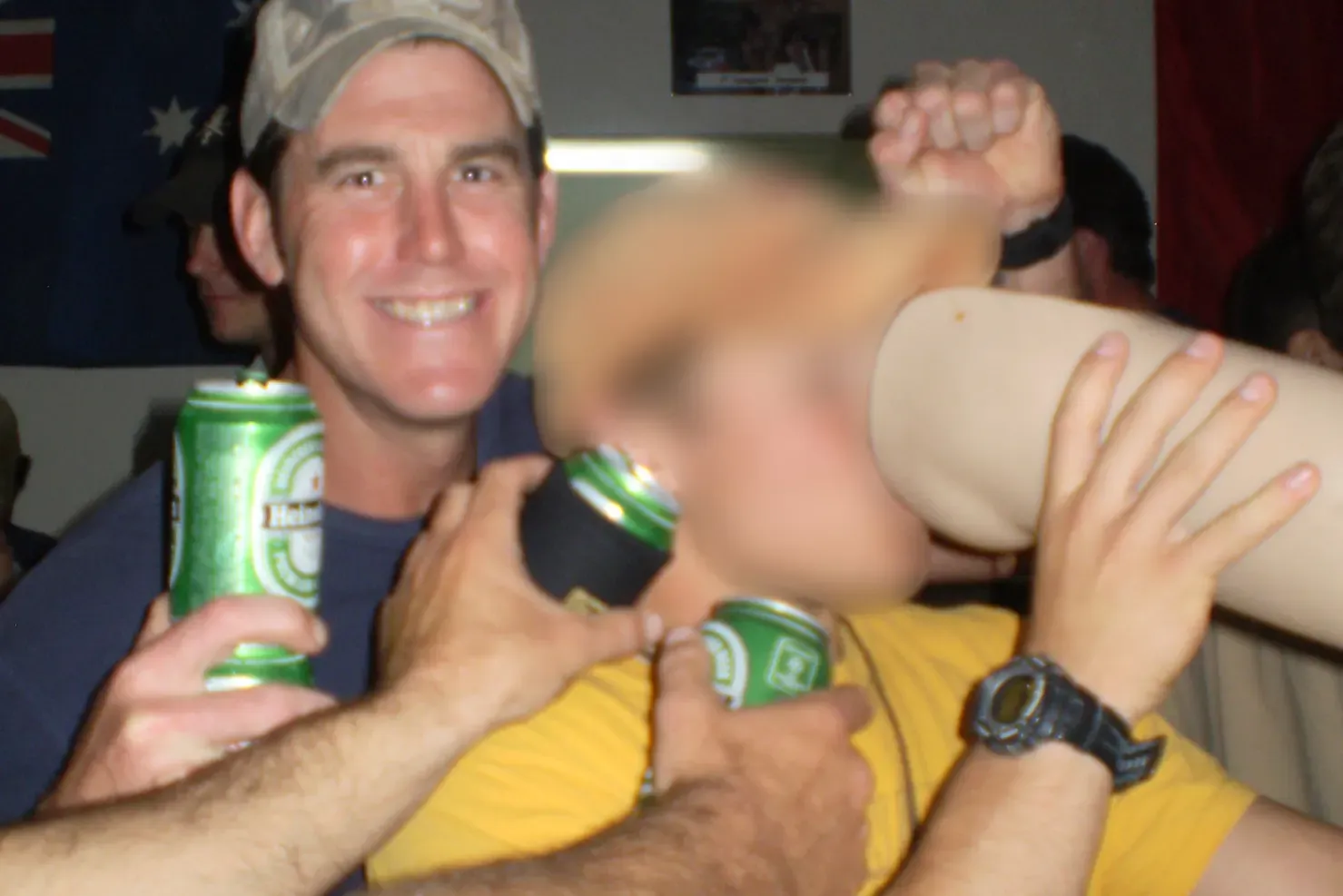
Not to worry, BRS swore on oath in the court that he himself never drank from the leg. Not once. Never ever. Case closed! Until this week.
The OSI [Office of the Special Investigator] is examining suspected murders beyond the four cases that were part of the ex-soldier’s failed bid to clear his name. The OSI has also uncovered a video of Roberts-Smith drinking from the prosthetic leg of a man he had earlier executed during an Easter Sunday 2009 operation targeting a compound called Whiskey 108.
Ben, some free advice from a guy about to go overseas to a bloke who keeps shooting himself in the foot: the insurance companies only pay out two per person.
Addenda
A Speech For The Ages
There are moments, I think, that you know will stay with you for some time. Maybe a life. Being in the room on Friday night as Michelle de Kretser was announced the winner of the $60,000 Stella Prize for her novel Theory & Practice is one of those for me. Not least of all because I got to interview her immediately afterwards – my fellow judges in the room Astrid Edwards and Leah Jing McIntosh would have been infinitely more qualified to do so – which had me in a state of thrumming dysfunction.
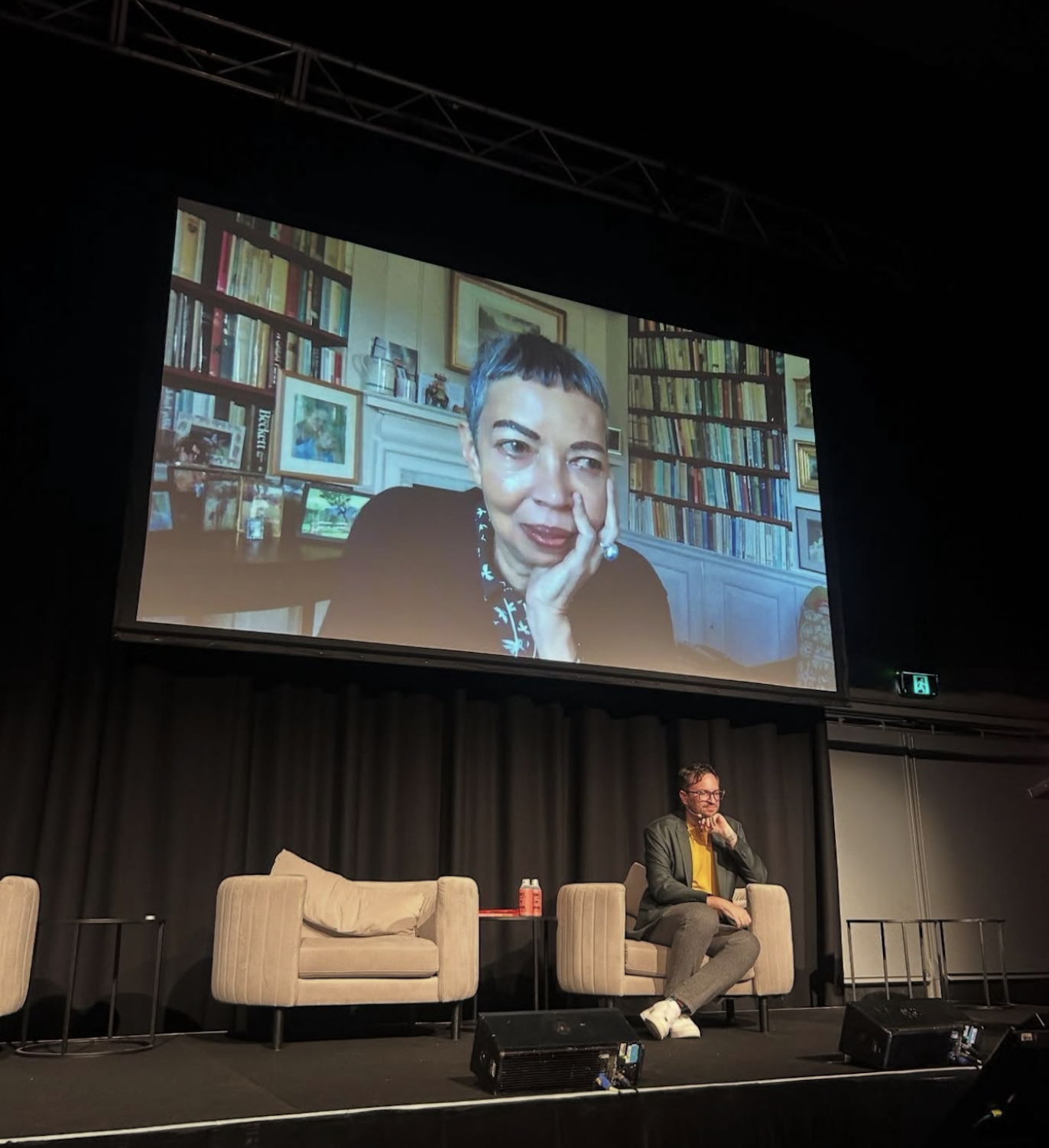
But, dearest readers, the real power of that evening was in de Kretser's speech. You could read it, certainly, but really you must watch it. Many in the room were moved to tears and I was left stunned by its steely elegance and the absolute precision of her language which, having just won a prize for her flawless novel, should not have been surprising. Please do yourself the service of watching it.
Conferences et al
I've been in Melbourne and now Sydney for the past week, my last and final string of official engagements before I leave the country for a year (or until my savings run out). One habit I hope to break over the next year is a totally unworkable approach to life. For example, at Sydney Writers' Festival at my last session on Sunday afternoon – after a run of events over three days – I threw absolutely everything at the session and then signed books for almost 90 minutes which was incredible and then I went back to my hotel and ran the longest I have ever run without stopping, 7.5km in 44 minutes and 19 seconds. Now, of course, I am thoroughly depleted. I do enjoy having done events like these, or the DSC conference in Melbourne on Wednesday last week, because they act as a way of thinking out loud.

So valuable. And you meet people, or reacquaint yourself with people, which is something I do less and less in recent years. But I tell you what: I am so looking forward to a break.
I have nothing left to give.
